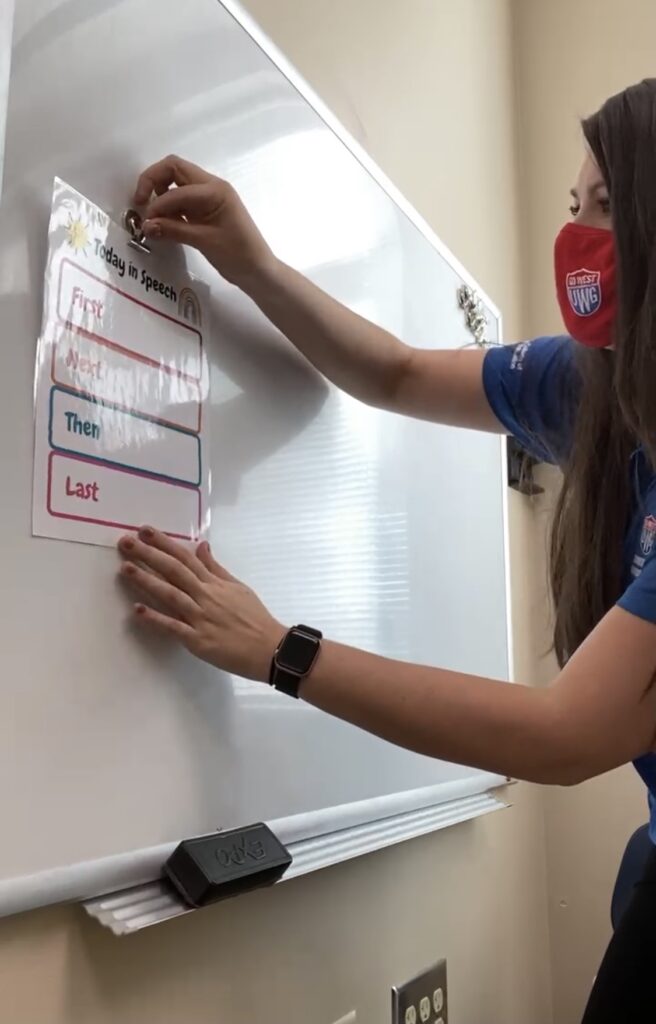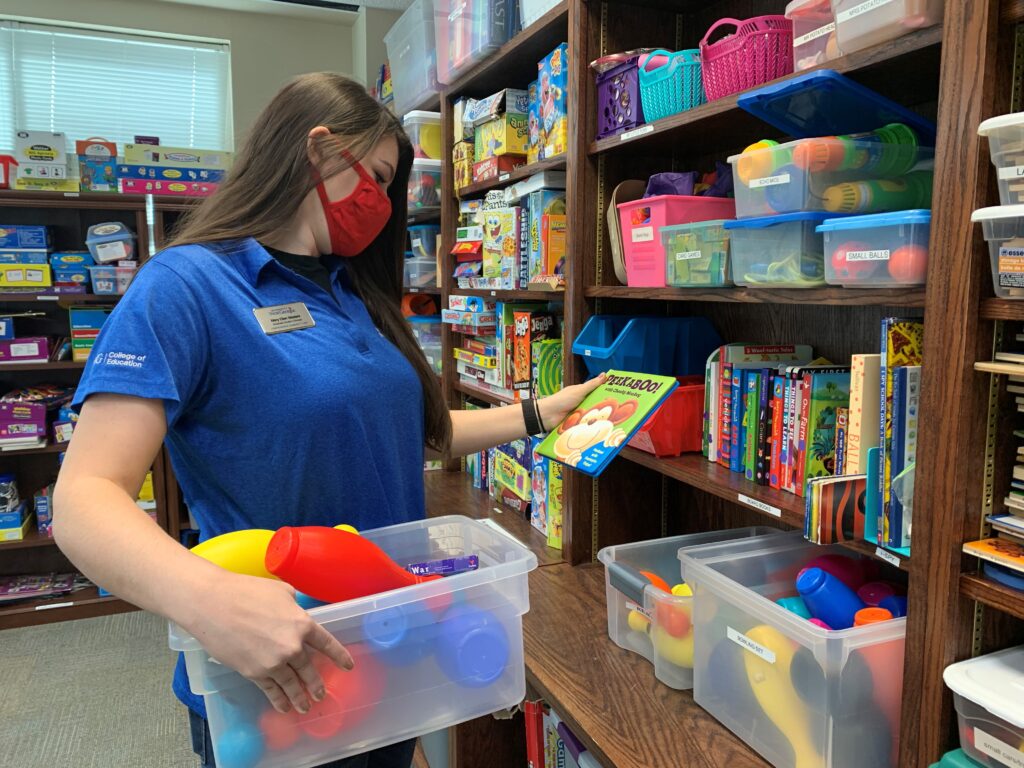The coronavirus pandemic has affected everyone in some way or another. One student has seen these obstacles firsthand while in graduate school. Mary Ellen Masters is a graduate student clinician at the Comprehensive Community Clinic at the UWG.
The clinic provides services for communication disorders, counseling, mathematics, literacy and special education. Mary Ellen specializes in Speech Language Pathology at the clinic where she works on articulation, expressive and receptive language. In working at the clinic, Mary Ellen has seen how the pandemic has altered its operations.
“Not only do we have to wear masks, we also have to wipe down every material that we use after each client and parents aren’t allowed past the waiting room,” said Mary Ellen. “As well as we can’t have any food items, like candy for rewards for the kids. We now offer teletherapy for the clients who don’t want to risk possible exposure.”
Teletherapy is the act of providing therapy services through technological means, such as video calling. Teletherapy was not used as much before the pandemic because it was easier for the clients to come in for evaluations and sessions. Now it has become common for many people that use the clinic as it offers an alternative to leaving their houses.
“Since the pandemic, teletherapy services are being offered more and that’s different to adjust to when you’re used to in-person therapy sessions,” said Mary Ellen. “In undergrad we didn’t learn much about teletherapy so it’s a new concept and an addition to learn, but it’s an opportunity too. It’s just harder to provide services over the internet because you can’t be hands-on, it’s all on the computer screen.”

The implementation of masks at the clinic has also made for another obstacle to overcome. When working in the speech field, important areas of care are being able to model how to say words and build a relationship with the clients. The implementation of masks has made this harder to achieve.
“Having to wear masks is extremely difficult,” said Mary Ellen. “We offer clear masks, but they aren’t as useful because they fog up and that defeats the purpose. Kids like to see facial expressions and a smile. To not be able to build the connection as quickly because of the masks makes it that much harder to do.”
The pandemic has affected all aspects of our lives and those that attend the clinic have had to adapt to the changes that have been made to ensure their safety. Many attendees of the clinic are children and these changes can be difficult and foreign for them.
“I think it’s been especially hard for the children that attend the clinic because they have had to adjust to the mask wearing and the protocols,” said Mary Ellen. “It feels different for them because they don’t quite understand what exactly is going on.”
Regardless of the pandemic, Mary Ellen says that it hasn’t changed her outlook on her chosen profession. She feels that this is just another opportunity to learn, grow and overcome. She believes that the work she does at the clinic is important and that it is worthwhile.
“I chose this field because I saw the positive impact that it had upon my family’s lives and, pandemic or not, I want to help others as much as I can,” said Mary Ellen.
You may also like
-
UWG Alumnus Shares His Experience Exploring the Underground Flood Channels of Las Vegas
-
Georgia Students Simulate the Struggles of Dementia
-
UWG PR Students Score a Georgia Power Tour at Atlanta Corporate Office
-
UWG Hosts Rapha Clinic Annual 5K Fundraiser
-
QSA Annual Drag Show Entertains Eager, Diverse Crowd
